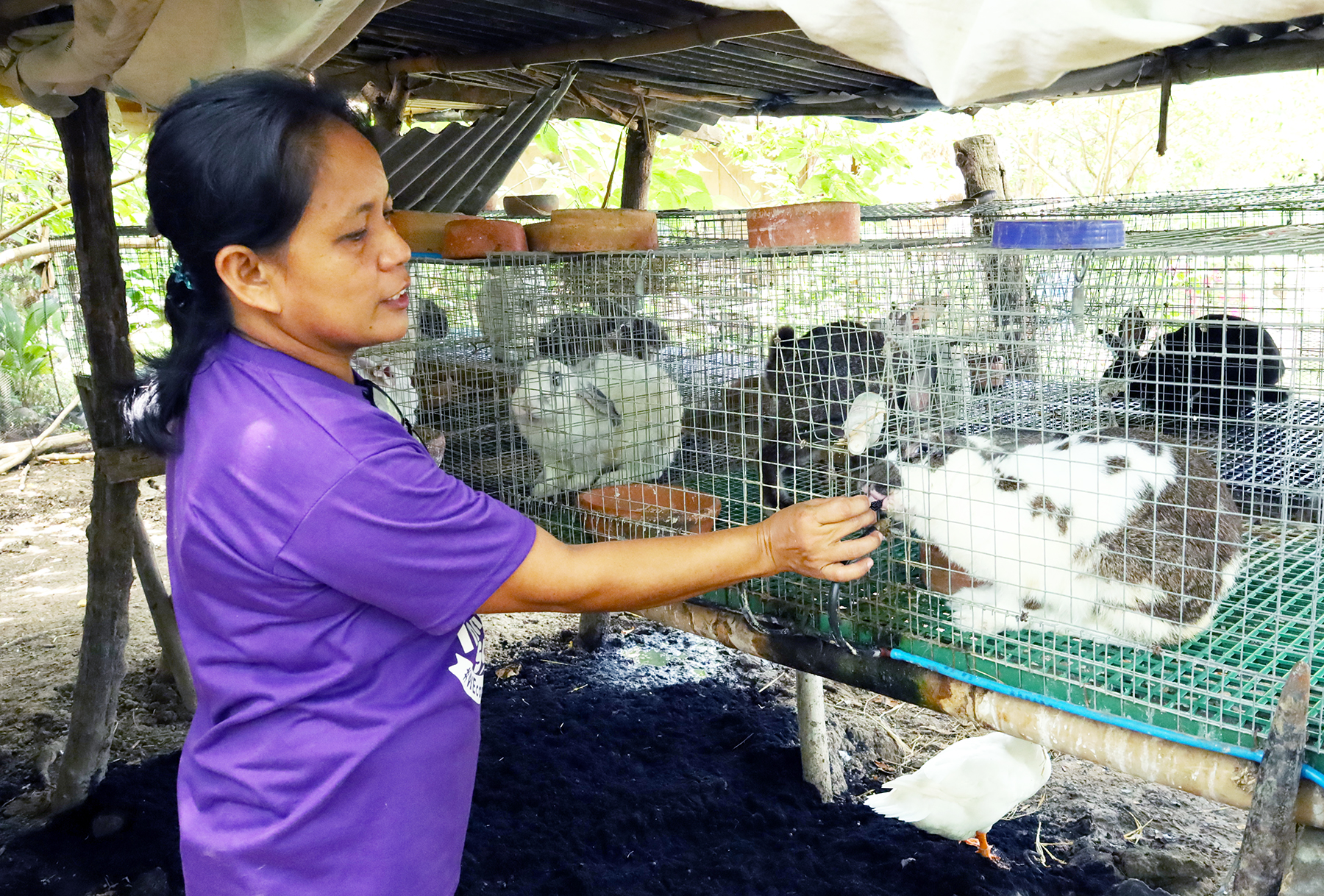
When the African Swine Fever (ASF) was first reported in the Philippines in 2019, the local hog industry, both commercial and backyard hog farmers, did not realize that the incident would have its impact beyond numbers.
In a conversation with one of the rural women leaders in Cagayan Valley in March 2023, the Philippine Council for Agriculture and Fisheries (PCAF) Gender and Development Focal Point System (GAD FPS) sat with Mercy Andres-Biala as she shared her journey in ASF recovery and empowerment.
“Noong nabalitaan namin na isa-isang namamatay yung mga alagang baboy dito sa amin sa San Manuel, natakot talaga kami,” Mercy recalled the time when cases of ASF were first confirmed in their town in Isabel, Cagayan February 2020.
Later that year, Mercy and her husband, Rodgier, saw some circular red spots or lesions in some of their pigs. Although part of their livelihood, she considered the herd as part of their family, especially the sows.
In just a short time, they witnessed how their pigs manifested symptoms of ASF. Some of them could barely stand and eventually died in their pens.
In one of the research findings published in a journal called Frontiers in Veterinary Science, researchers found out that Filipino farmers form significant attachment to their pigs, and that the depopulation effort of the government in response to ASF had a “deep and emotional impact” on the farmers.
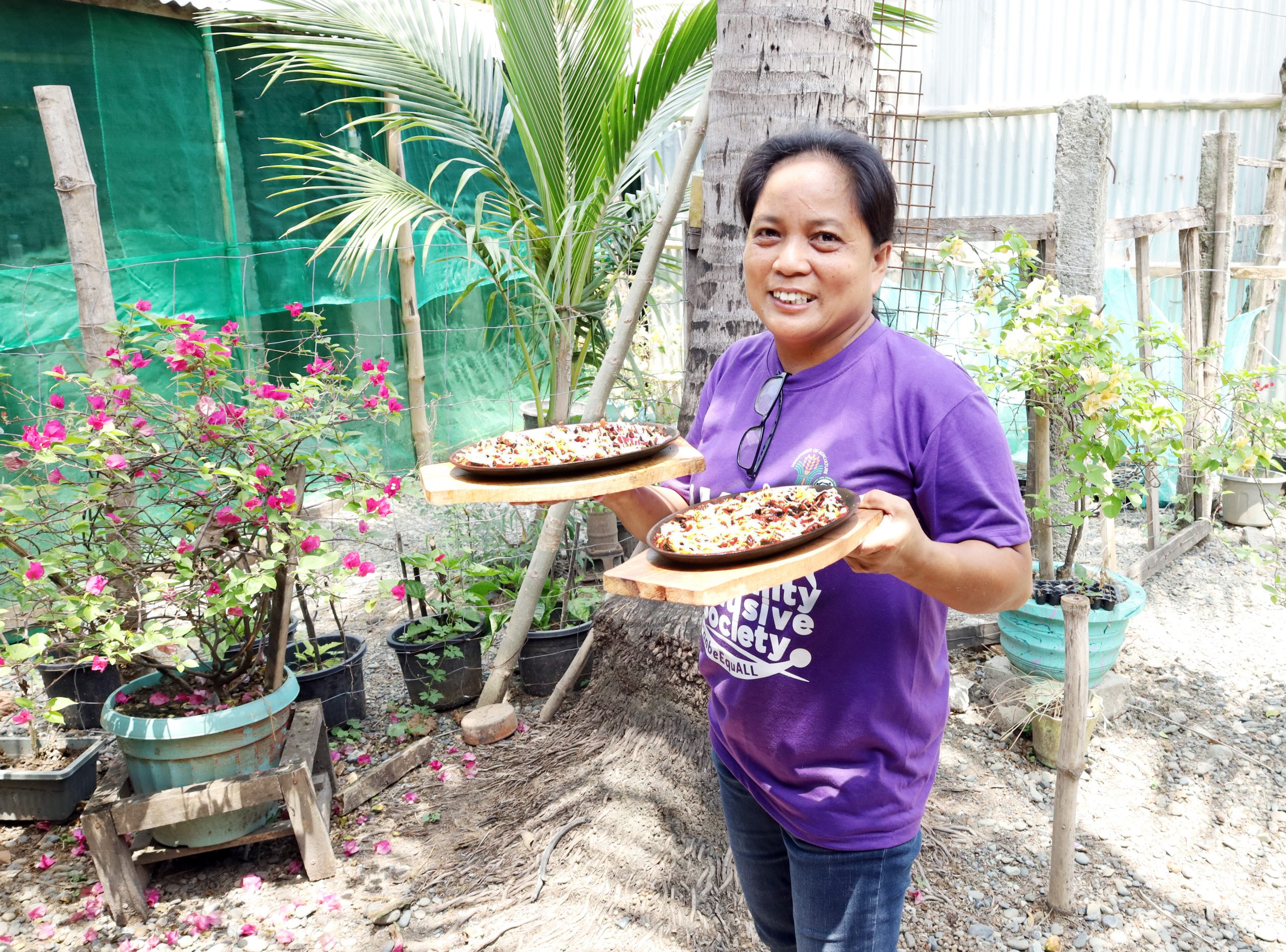
From having one of the biggest piggeries in San Manuel, Isabela, Mercy and Rodgier culled and buried their 84 fatteners, 16 hybrid sows, and more than 100 piglets, as advised by the Department of Agriculture.
“Hanggang ngayon, naririnig ko pa rin yung mga iyak ng mga baboy ko. Hindi lang namin sila alaga, parang pamilya kasi sila ang nagbigay sa amin na kabuhayan,” Mercy shared as she hold back her tears.
After the incident, she would visit the piggery at the back of their house, now with empty pig pens and unusual silence in the area. She would just stare at the clean panels, feeders and waterers not knowing what to do next.
Mercy Andres-Biala: Daughter. Wife. Mother.
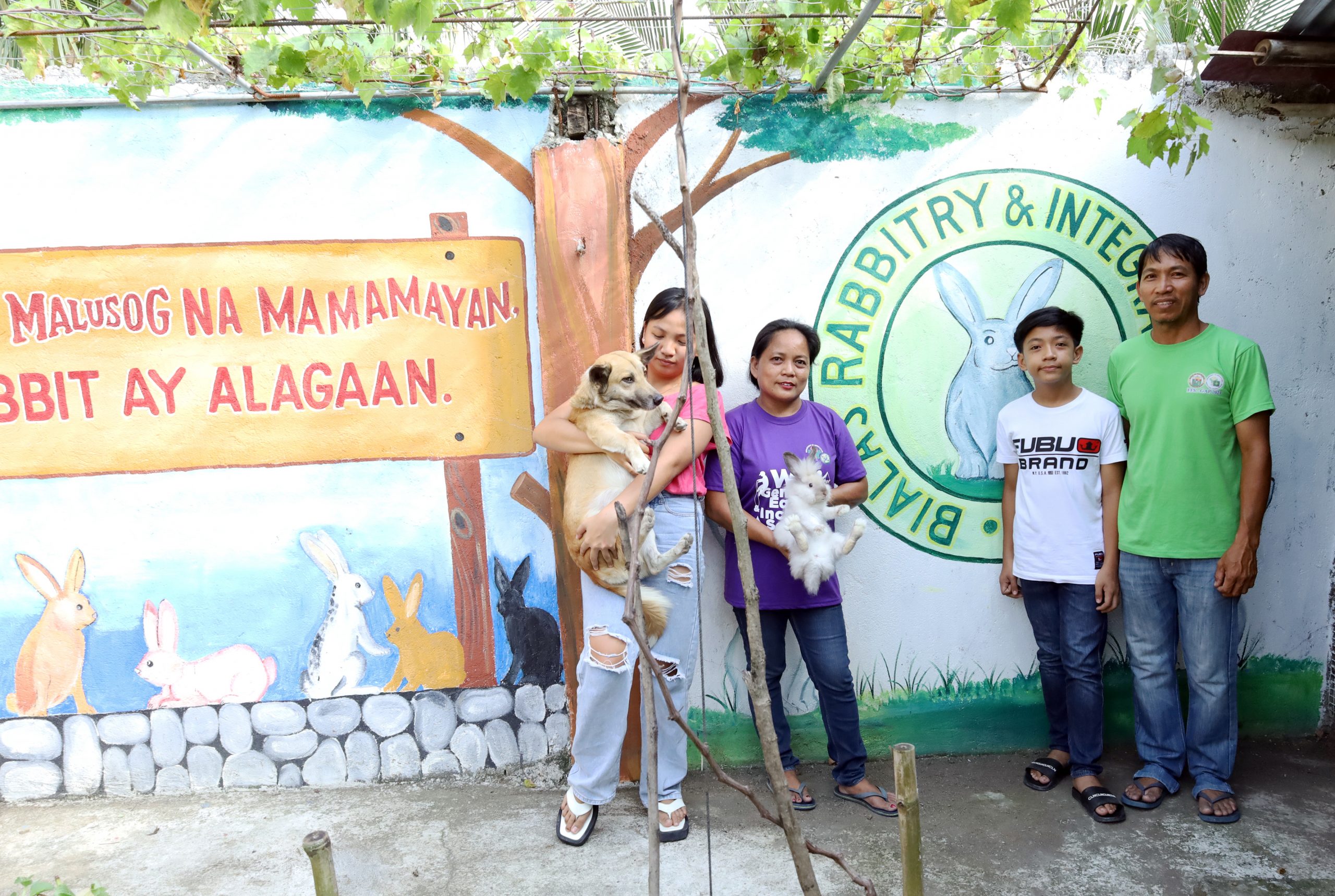
As a daughter of a farmer, Mercy, who originally hails from Gamu, Isabela, dreamed of having her own farmland. She wanted to be like her father and knew that she needed to access information and knowledge to attain her dream.
She took up an agricultural technology program in Isabela, where she also met her husband, Rodgier. After completing the two-year program, Mercy briefly worked at the Isabela Experiment Station in Gamu.
Admittedly, Mercy knew then that she would not be able to attain her dream with the salary she was making. So just like her friends and neighbors, she went to Hong Kong to work as a household service worker at the age of 18.
“Nalungkot ako na kailangan kong pumunta sa ibang bansa para magtrabaho pero alam ko kailangan kong gawin iyon,” Mercy continued.
For 15 years, Mercy served as a household worker to a British-Chinese family. During those years, Mercy and Rodgier, now an agricultural technician, married and had their first born, Rome Jewel.
Rodgier also helped Mercy to invest her hard-earned money in livestock farming and rented farmlands in San Manuel. Mercy also used her day-offs to attend training in meat processing in Hong Kong.
Mercy knew that she needed to go back to the Philippines to make up for lost time with her husband and daughter.
“Tulad ng maraming overseas Filipino workers, alam kong kailangan kong bumawi sa anak ko at sa asawa ko. Mas naalagaan ko pa ang pamilya ng ibang lahi kesa sa sarili kong pamilya. Ilang beses na rin akong nagpaalam pero nakikiusap sila lagi sa akin na mag-extend pa (ng contract),” she narrated, remembering how her employer was considerate to her requests.
She also said that up to now, they are still in constant communication and have been updated on their lives.
With the help of her husband, she started a piggery business and a farm. She wanted the farm to be close to their house so she could spend more time with her growing family, especially since they have a new addition to the family, Mark Romer.
What is next? From piggery to rabbitry
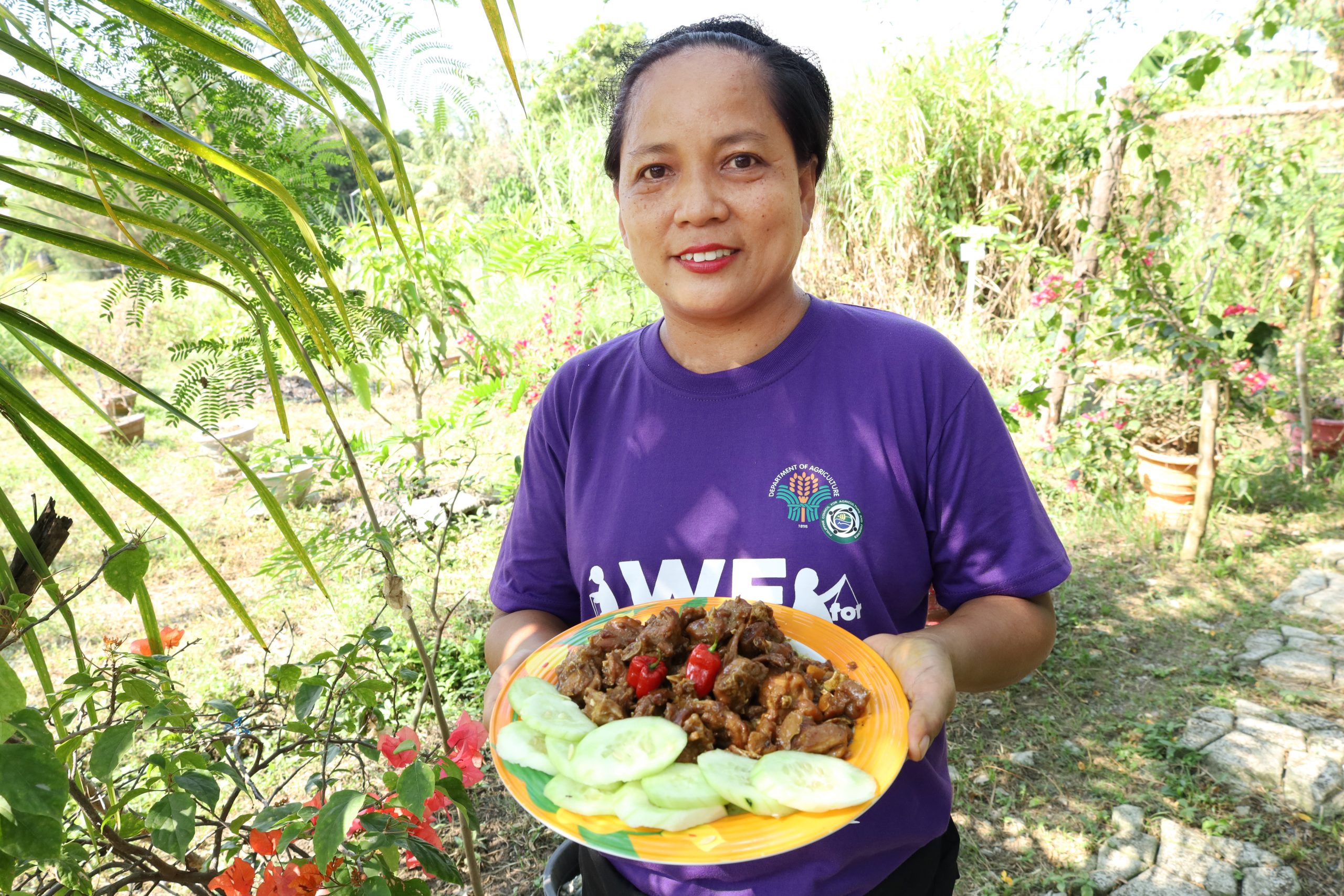
After the ASF incident and all was lost, Mercy saw an opportunity to stand again by trying something new.
Mark, her then nine-year-old son, became fond of rabbits. He watched educational videos about rabbits and how to take care of them.
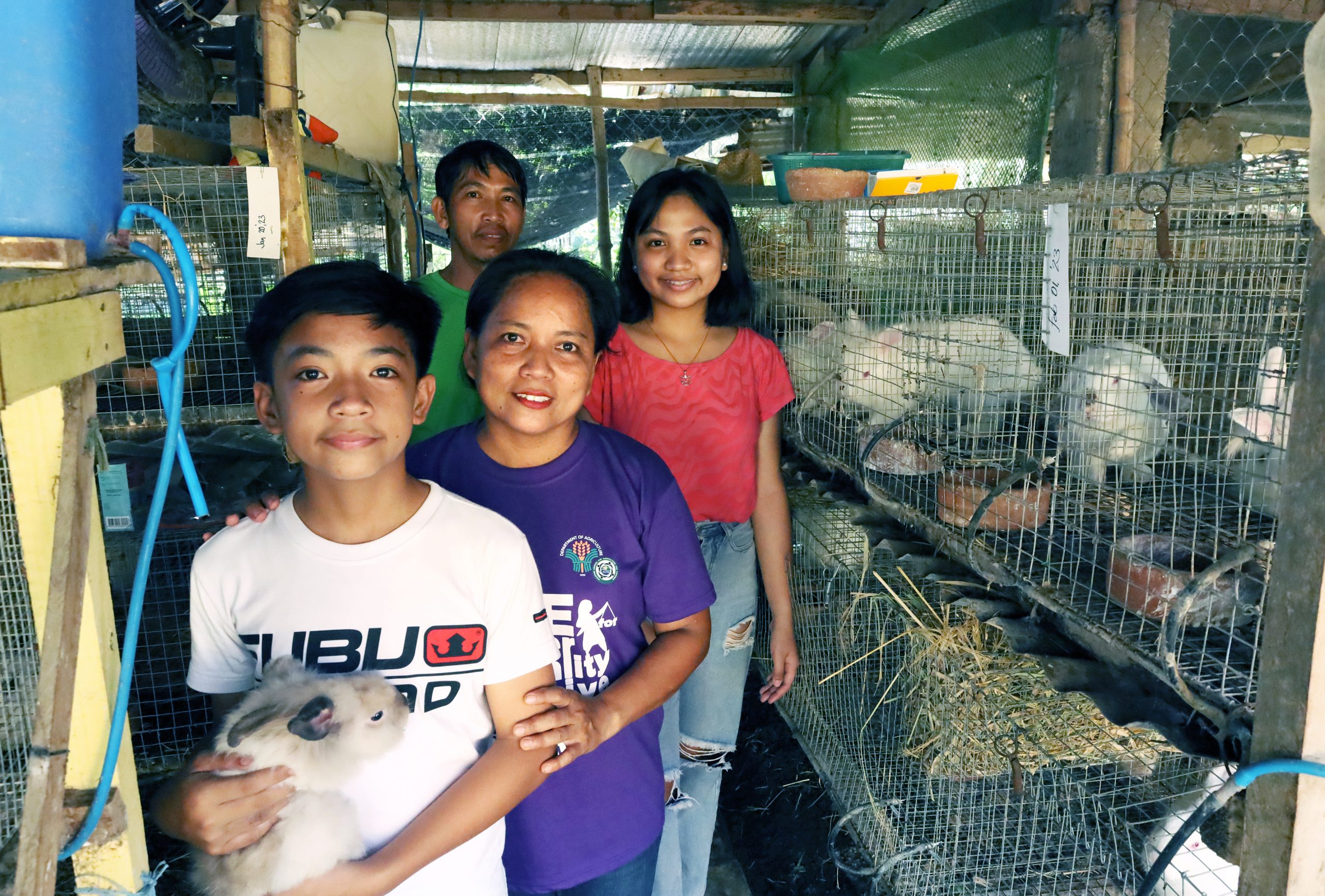
“Hindi po tulad ng ibang animals, ang rabbit ay madaling alagaan at pakainin. Madali rin po silang paramihin,” shared the now 11-year-old lad.
Mercy also shared that the first batch of rabbits was purchased using Mark’s own money he saved through a local cooperative. Two years ago, Mark asked his parents to pick up 16 rabbits that he had ordered from a rabbit farm in Pangasinan, which is about seven hours away from Isabela.
Compared to a piggery which makes roughly 50 thousand pesos a month, the rabbitry contributes 15 thousand pesos to their family’s monthly income.
Mercy took the challenge to shift from growning pigs to rabbits. In the Philippines, many disapprove of having rabbits as an alternative meat source because of the belief that rabbits are domesticated as pets only.
In a statement, DA encouraged farmers affected by the COVID-19 pandemic and ASF to support the production and distribution of rabbits for meat consumption and livelihood. Former DA officials also promoted rabbits as a healthy substitute for pork, highlighting the short growth cycle of the rabbits.
Although new to her, Mercy braved the unknown rabbit hole and used social media to promote various products and dishes she can make with the meat.
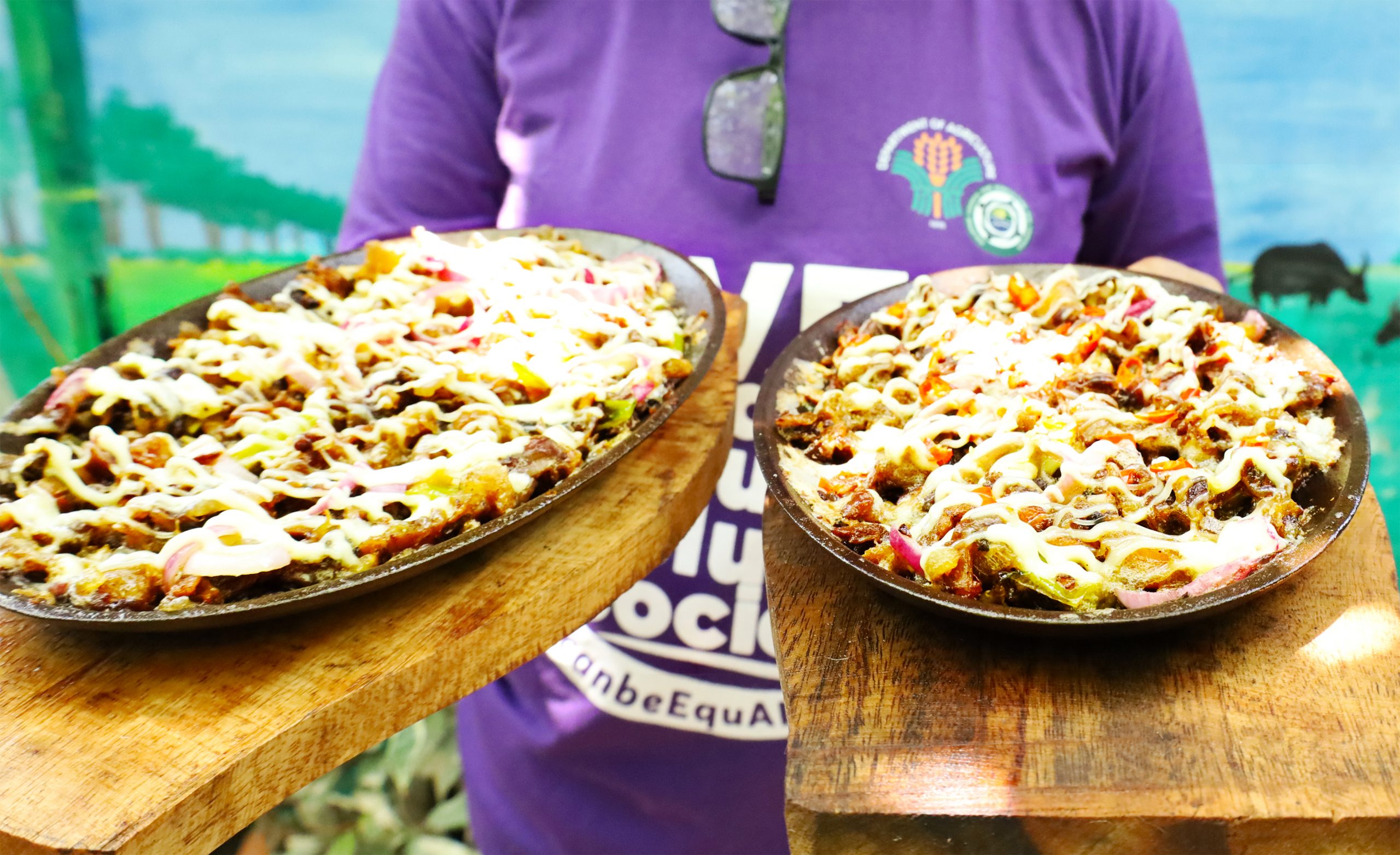
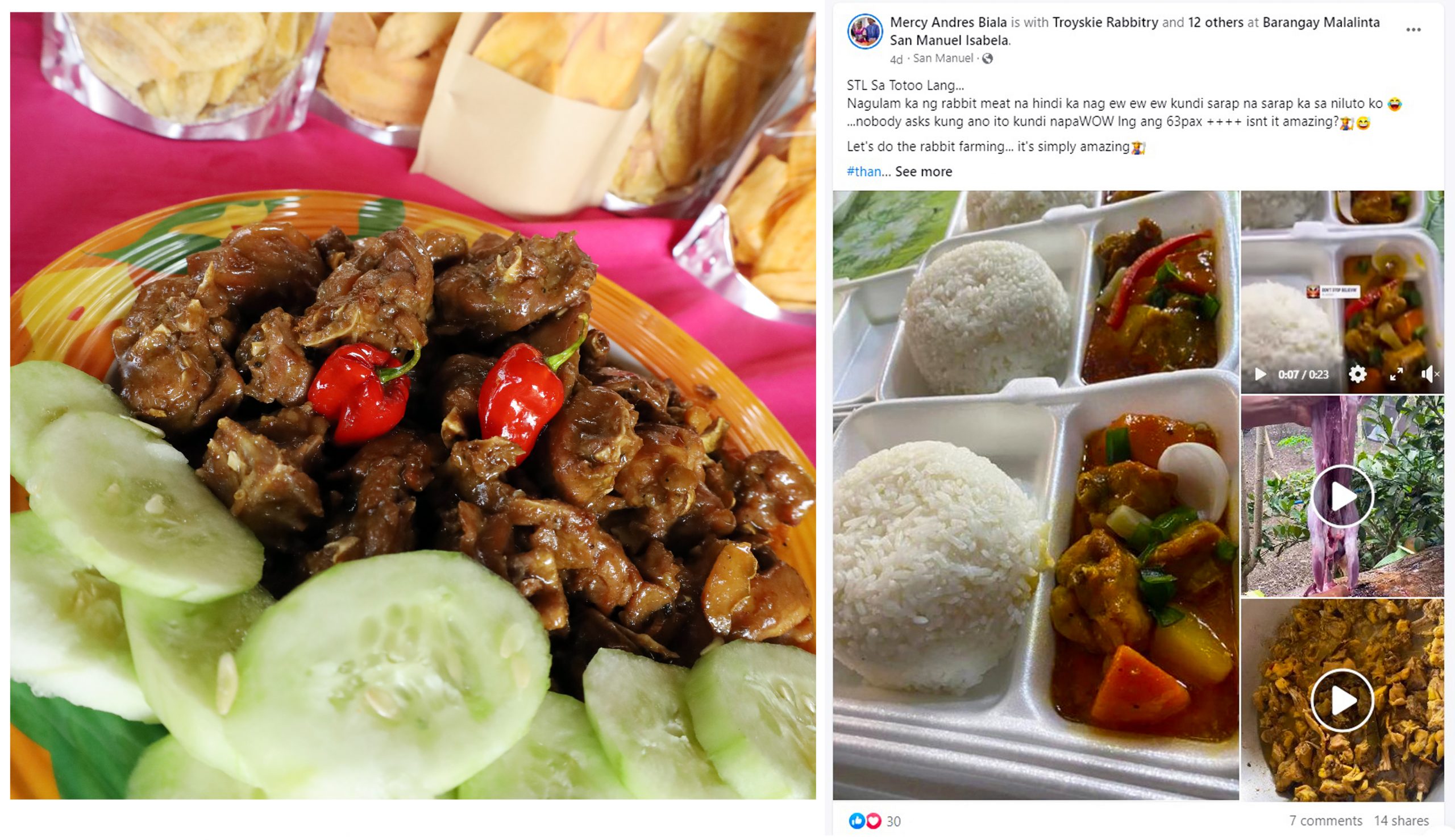
“Iba ang rabbit namin na for pets, hindi sila malaman. Iba rin ang rabbit namin na for meat source. Nagluluto ako ng iba’t-ibang ulam na gamit ang meat ng rabbit at pinopost ko ito sa social media,” Mercy explained.
She would post photos and videos of rabbit recipes and use social media to promote and market them to nearby areas. Aside from rabbit meat, she would also post her products like banana chips, chicharon, and fish balls made from mushrooms, and other produce from her poultry and fish ponds.
Mercy proved that she can overcome challenges by involving her family in the agri and fishery industry. As a farmer, she wants her children, Jewel and Mark, to know that farming is fun and profitable.
She braved the challenges to make major decisions and interventions for her family, farm, and now, her community and fellow women in agriculture.
A father’s advice: Create your own path
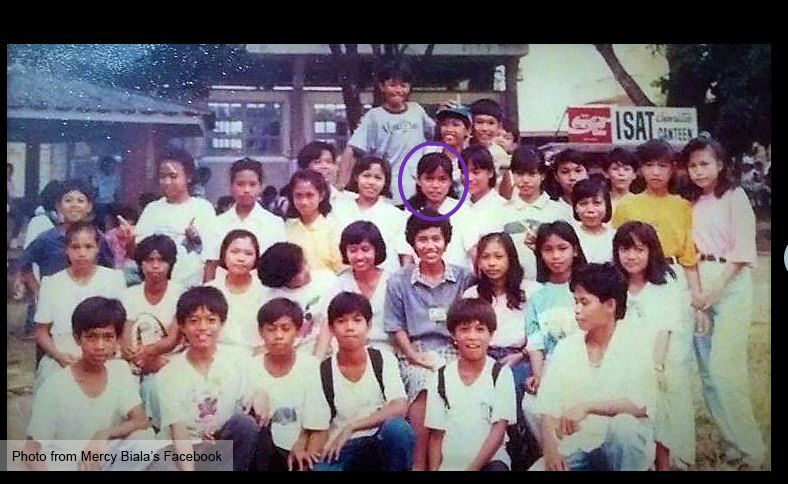
Mercy’s father, the late Marciano Andres used to say “aramidem dagiti ibagbagak ngem han mu tuladen amin nga aramid ko”.
These words hit Mercy realizing she can follow one’s advice but not exactly the action. It goes the same way in agriculture.
“Madalas nating naririnig o nababasa yung comment na ‘sana all’. May mga pagkakataon tayo na sundin ang mga advice at tips na nakikita natin sa social media pagdating sa farming. Gamitin natin itong mga advice na ito para kumita at gumawa ng sarili nating business, hindi yung susunod lang tayo sa kung ano ang ginagawa ng iba,” she added.
Aside from promoting crop diversification and product differentiation, Mercy also encourages women in agriculture to be involved in decision-making and to have a voice in various discussions.
“My dream is to have gender equality in terms of access to programs, projects and opportunities, not only in agriculture pero sa lahat ng aspeto. Katulad ko, pangarap kong magkaroon ng sariling lupa pero hindi naging madali ang pag-abot ko sa pangarap na ito dahil sa lack of opportunity,” she added.
Aside from equality and access, she also mentioned that women in their community need capacity building to be empowered in everything they want to pursue.
“Sa pamamagitan ng pagla-live at pagpopost ko (on social media), I get to see comments on how I encourage them to venture in agriculture and in rabbitry,” Mercy said, noting that she will soon expand their farm and will employ additional workers, preferably from the women organizations that she is also part of.
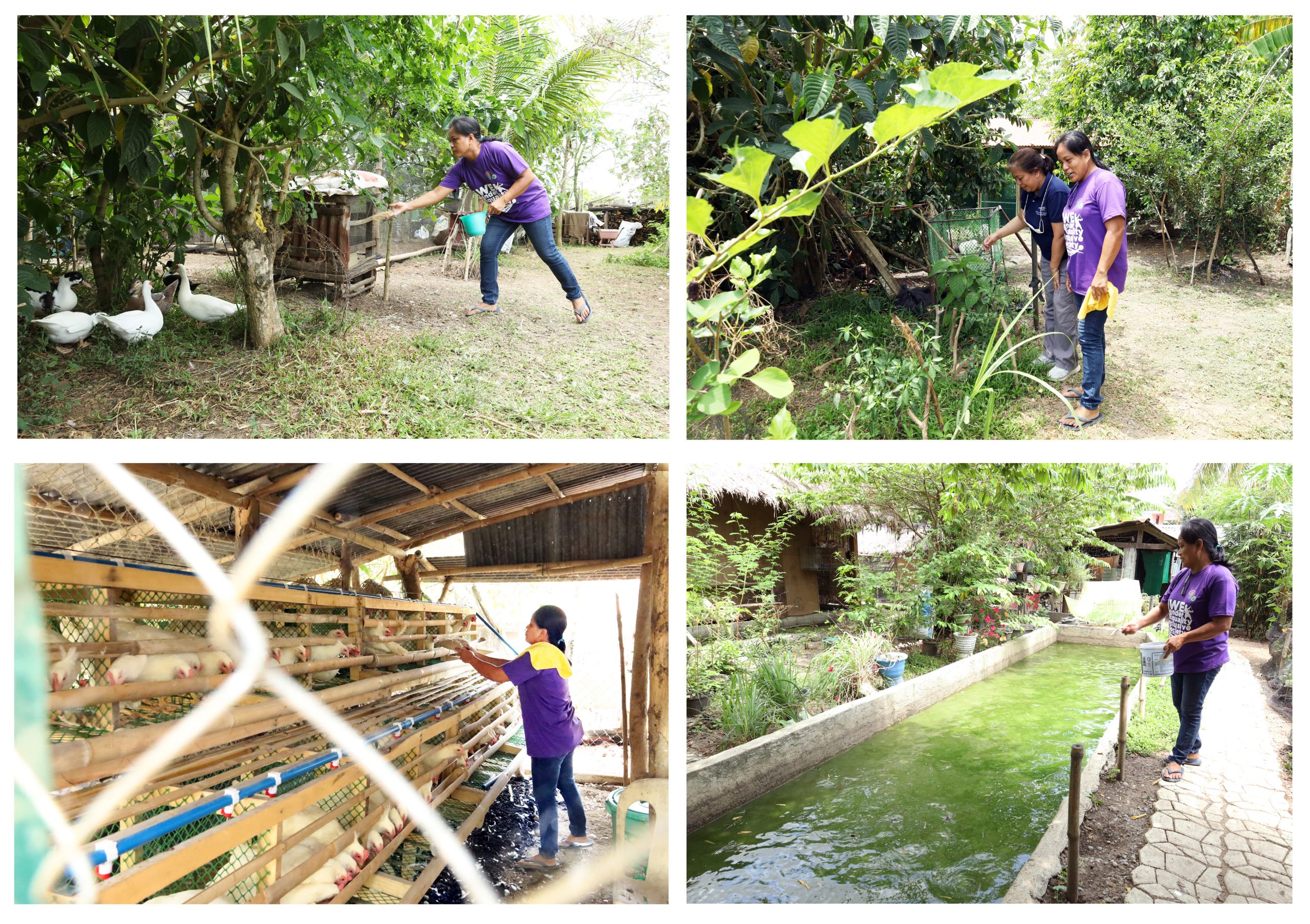
She added that more women should join the Agricultural and Fishery Councils (AFC) because they can be updated on the programs, projects, concerns and issues in the industry. This information can help them solve problems like irrigation, farmland registration, and possible market for their produce and products, among others.
Aside from being a woman leader and agripreneur, Mercy is also the MAFC San Manuel Women Sectoral Representative. She aspires to be an example in their municipality that women can also participate in decision-making and participatory governance.
“Sa kabila ng mga nangyari, napagdaanan namin iyon because I am motivated by my husband, my children, the community at ang mga kababaihan na kagaya ko na pwedeng guminhawa sa buhay dahil sa mga oportunidad,” she added.
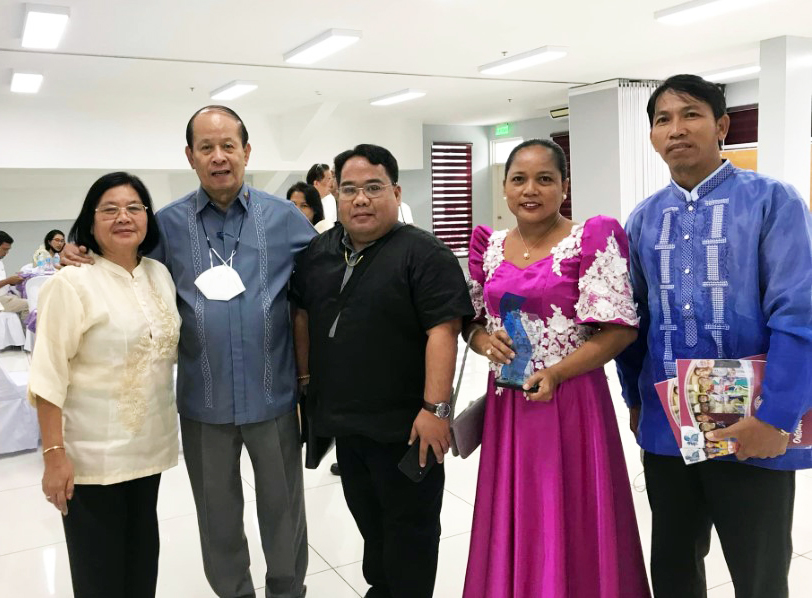
Mercy realized that losing a battle is not truly a defeat. It allowed her to dive into an unknown route, create another path, and eventually break barriers.
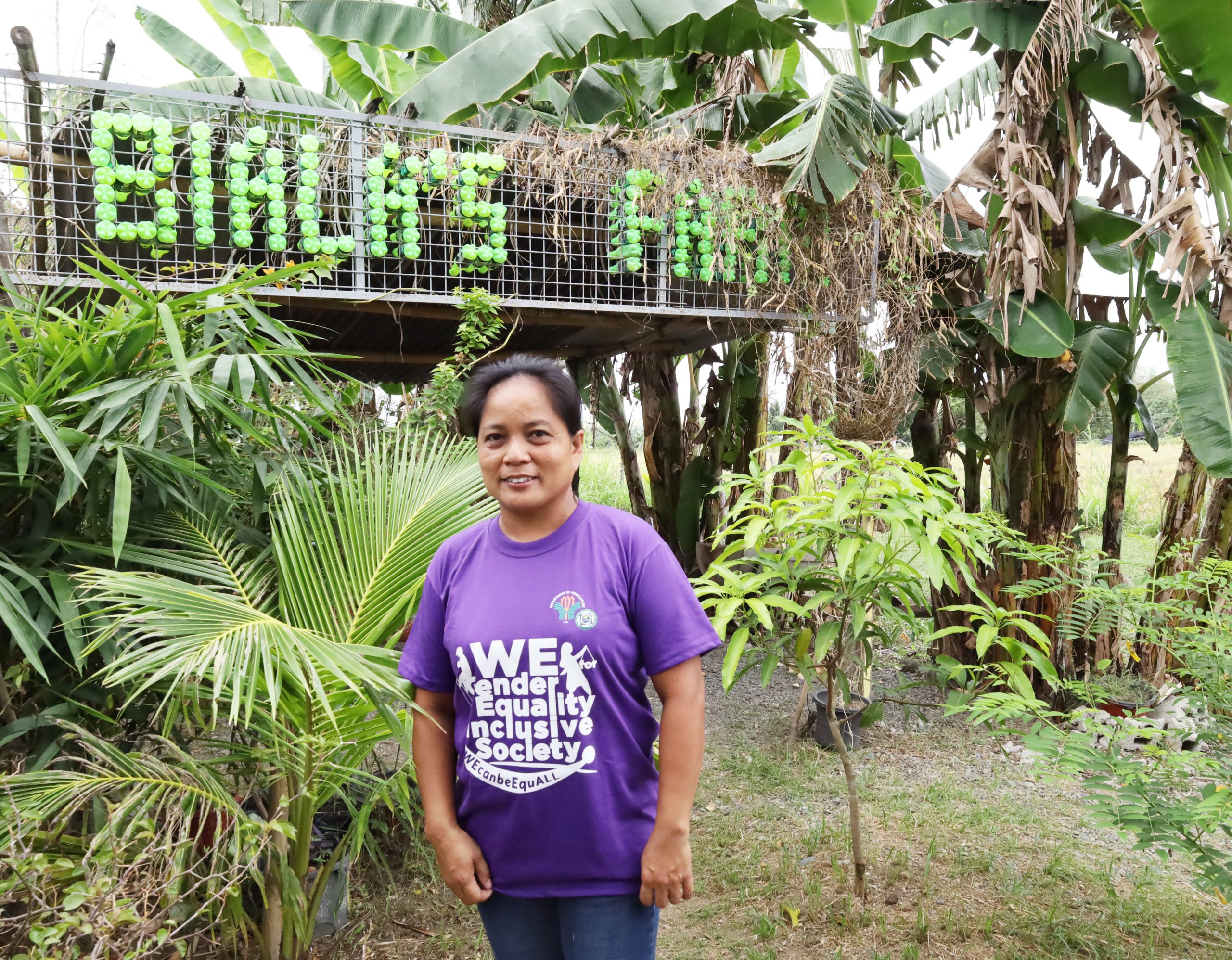
Aside from her rabbitry, fruits and vegetables, mushroom, banana, fish pond and other sources of income, Mercy just had her six piglets delivered. She is ready to try again, hoping for the best. |JC











